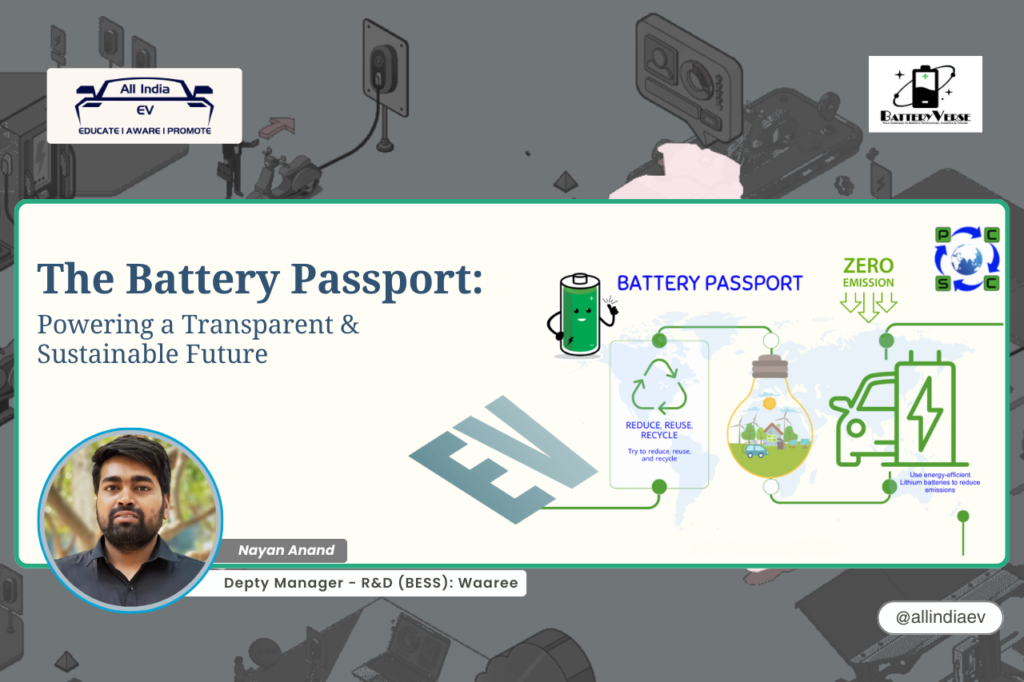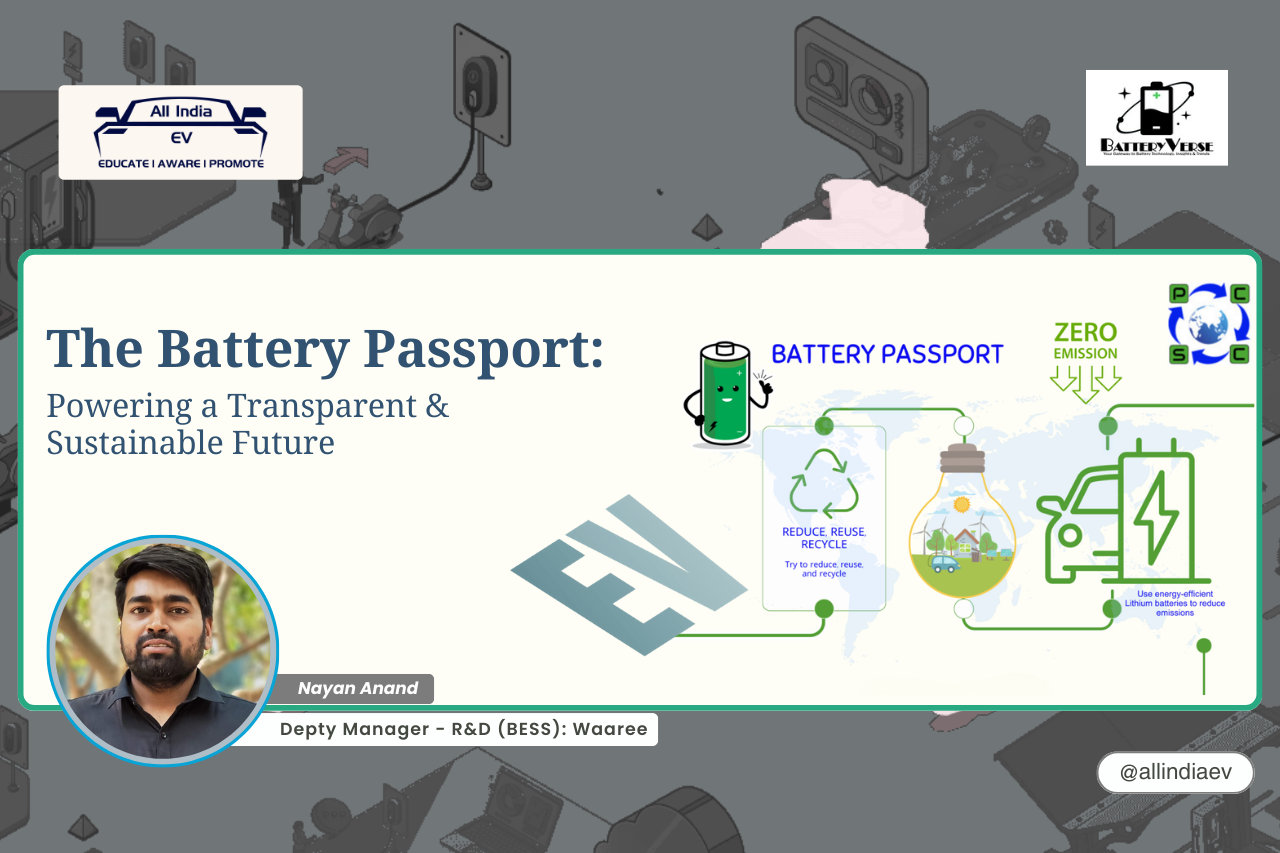
A Battery Passport is a digital record attached to a physical battery, storing verified information about its materials, performance, carbon footprint, and lifecycle
In the age of electrification, batteries are not just components – they are the backbone of the clean energy transition. From EVs to grid-scale storage, their demand is skyrocketing. But with this growth comes an urgent need for traceability, sustainability, and accountability.
This is where the Battery Passport comes in — a digital identity for every battery that ensures transparency across the entire value chain.
What is a Battery Passport?
A Battery Passport is a digital record attached to a physical battery, storing verified information about its materials, performance, carbon footprint, and lifecycle.
Think of it as a “digital twin” of the battery, enabling end-to-end visibility — from mining raw materials to recycling.
It was first introduced by the Global Battery Alliance (GBA), supported by initiatives under the EU Battery Regulation, to establish a global standard for responsible batteries.
Key Elements of a Battery Passport
Unique Identification
Each battery has a scannable ID (QR code/NFC).
Enables real-time tracking through its lifecycle.
Material Provenance & Traceability
- Source of raw materials (cobalt, lithium, nickel, etc.).
- Ethical mining certification & proof of responsible sourcing.
Carbon Footprint Disclosure
- Total CO₂ emissions across production, use, and recycling.
- Supports net-zero commitments.
Technical & Performance Data
- Capacity, State of Health (SoH), State of Charge (SoC).
- Lifecycle history (charge/discharge cycles, energy throughput).
Recycling & Second Life Information
- Recyclability data and material recovery potential.
- Second-life applications (e.g., repurposed EV batteries for BESS).
Compliance & Certification
Acts as a digital compliance passport for global trade.
Proof of compliance with EU Battery Regulation, ISO standards, and ESG frameworks.
Why Do We Need a Battery Passport?
Transparency – Prevents greenwashing by verifying sustainability claims.
Circular Economy – Encourages repair, reuse, and recycling.
Consumer Trust – Provides users with real-time data about battery health.
Regulatory Compliance – Meets EU & global supply chain regulations.
Investor Confidence – Attracts green financing by proving ESG alignment.
The Global Push for Battery Passports
European Union (EU): From 2027, all EV and industrial batteries sold in the EU must have a Battery Passport.
United States: Similar initiatives are being considered under supply chain transparency acts. Asia-Pacific: China, Korea, and Japan are aligning battery traceability standards for global exports.
Battery Passport in India:
India, led by NITI Aayog, is developing its own Battery Passport framework as a digital ID for EV and storage batteries.
Much like an “Aadhaar for batteries,” it will use QR/NFC tags to store verified data on origin, chemistry, performance, safety, and lifecycle history.
The initiative aims to improve safety (preventing fire risks, mixed-age cells), support battery swapping ecosystems, boost recycling efficiency, and align Indian manufacturers with global export standards.
Integrated with the Battery Waste Management Rules, 2022, the system is expected to make India’s EV industry future-ready and compliant with emerging EU Battery Regulations.
Industry Impact
Automakers (Tesla, BMW, VW) → Using passports to prove ethical sourcing of cobalt & lithium.
Battery Manufacturers → Tracking carbon footprint and lifecycle performance.
Recyclers → Access to detailed material data for efficient recovery.Consumers → Greater confidence in EVs & storage batteries.
Future of the Battery Passport
The Battery Passport will not remain just a compliance tool. It is set to become:
- A global digital standard like an “International Battery ID Card.”
- A gateway for carbon credits & green financing.
- A data-driven enabler for AI-based predictive battery management.
- A building block for circular economy platforms.










